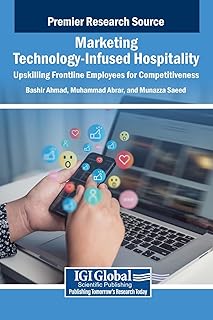GenAI has been a game-changer in transforming the global workforce, with the launch of ChatGPT in November 2022 marking a significant turning point. Executives and companies worldwide have eagerly embraced this emerging technology, leading to a surge in productivity and profitability. According to the 28th PwC Annual Global CEO Survey, more than half of CEOs have witnessed enhanced efficiencies, increased revenue, and improved profitability due to GenAI. This positive trend is set to continue, with a growing number of CEOs planning to expand their workforce in the next 12 months.
Investors and analysts are equally optimistic about the potential of GenAI, with two-thirds anticipating productivity gains in the near future. This sentiment is echoed by employees, as revealed in the PwC EMEA Workforce Hopes & Fears Survey, where a majority believe that GenAI will enhance their efficiency and create opportunities for skill development.
The transformative impact of AI, particularly GenAI, on economic growth and productivity cannot be understated. By streamlining tasks and enabling employees to focus on strategic activities, AI is reshaping traditional work models. However, successful integration of AI requires a strategic approach that includes upskilling employees to leverage the technology effectively.
As businesses navigate the age of AI, a shift in competition dynamics is evident, urging leaders to rethink strategies and prioritize trust. While integrating AI into core processes is crucial, equal emphasis must be placed on upskilling the workforce to maximize the technology’s benefits. Without adequate training and support, employees may struggle to adapt to AI-driven changes.
Building trust in GenAI is vital for its widespread acceptance and productivity impact. Transparency, responsible deployment, and adherence to ethical principles are essential in fostering confidence among stakeholders. Regulatory frameworks, such as the “human-in-the-loop” principle, aim to ensure accountability and uphold human values in decision-making processes.
The emergence of AI agents represents a new frontier in GenAI, offering autonomous decision-making capabilities that can revolutionize workflows. While AI agents are poised to enhance productivity and efficiency, human oversight remains crucial in ensuring their seamless integration into business operations.
At PwC, collaboration with industry partners, such as Microsoft, showcases the potential of AI agents in transforming operations and driving business value. By combining human expertise with advanced technologies, companies can unlock new opportunities for innovation and growth.
Empowering the workforce to embrace and upskill in GenAI is key to unlocking operational efficiencies and driving business success. Leaders must foster a culture of curiosity and experimentation, enabling employees to explore the full potential of AI. By embracing responsible AI strategies and nurturing a blended digital and human workforce, organizations can position themselves for success in the AI-driven era.
In conclusion, the future of work lies in the harmonious blend of human ingenuity and technological advancements. By instilling trust in GenAI, fostering a culture of continuous learning, and reimagining talent architectures, organizations can thrive in the age of AI. Leadership’s role extends beyond embracing AI opportunities to strategically planning for a skilled workforce that can execute long-term business strategies effectively.
📰 Related Articles
- Warner Bros. Rebrands Streaming Service to HBO Max for Global Expansion
- Saudi Arabia’s $9 Billion Mining Investment Spurs Global Expansion
- Qatar Airways Unveils Major Global Expansion with New Routes
- CATL Plans $4 Billion IPO for Global Electric Expansion
- BYD Targets Global Expansion, Challenging Automotive Giants by 2030






